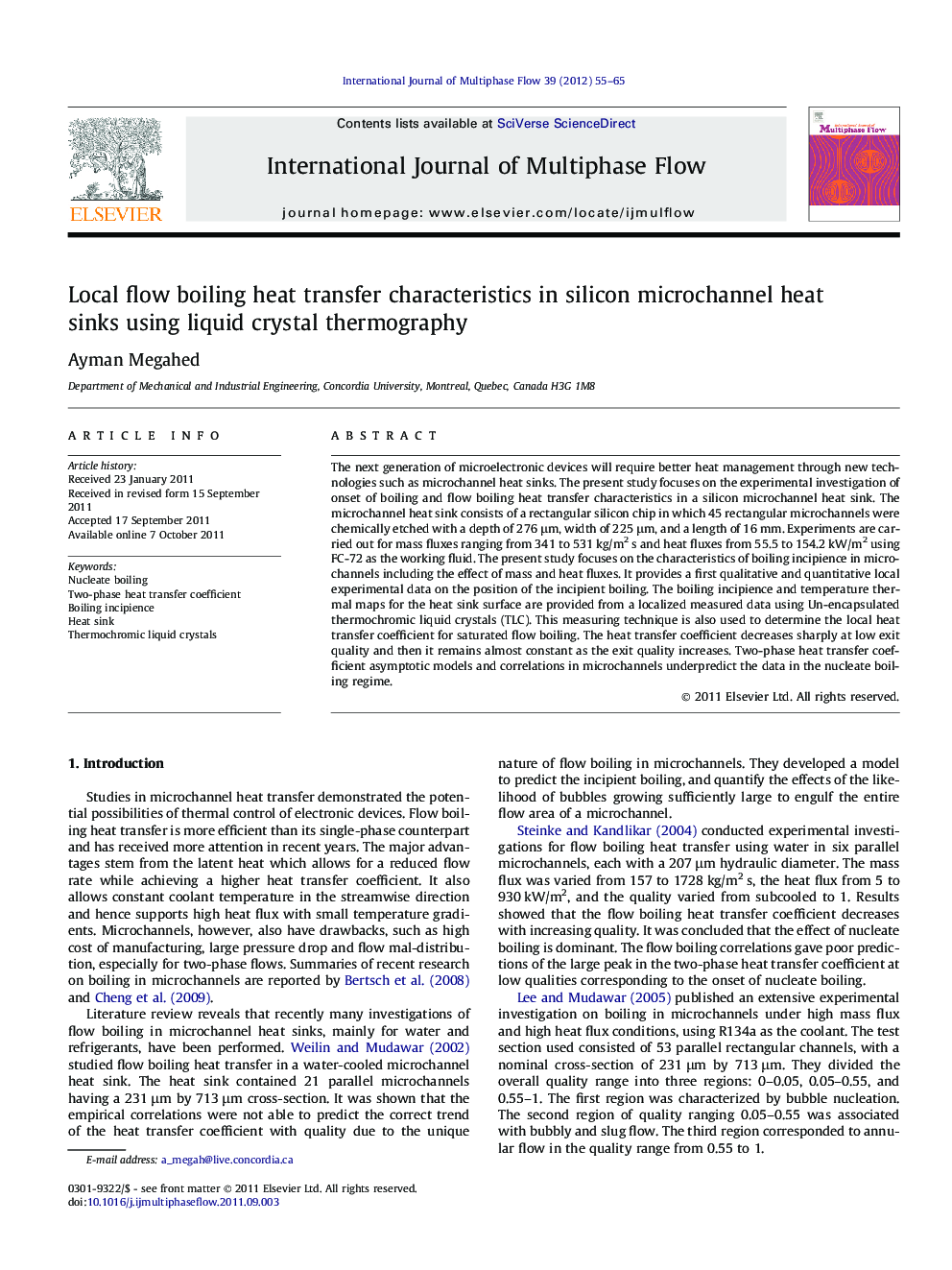| کد مقاله | کد نشریه | سال انتشار | مقاله انگلیسی | نسخه تمام متن |
|---|---|---|---|---|
| 666785 | 1458540 | 2012 | 11 صفحه PDF | دانلود رایگان |

The next generation of microelectronic devices will require better heat management through new technologies such as microchannel heat sinks. The present study focuses on the experimental investigation of onset of boiling and flow boiling heat transfer characteristics in a silicon microchannel heat sink. The microchannel heat sink consists of a rectangular silicon chip in which 45 rectangular microchannels were chemically etched with a depth of 276 μm, width of 225 μm, and a length of 16 mm. Experiments are carried out for mass fluxes ranging from 341 to 531 kg/m2 s and heat fluxes from 55.5 to 154.2 kW/m2 using FC-72 as the working fluid. The present study focuses on the characteristics of boiling incipience in microchannels including the effect of mass and heat fluxes. It provides a first qualitative and quantitative local experimental data on the position of the incipient boiling. The boiling incipience and temperature thermal maps for the heat sink surface are provided from a localized measured data using Un-encapsulated thermochromic liquid crystals (TLC). This measuring technique is also used to determine the local heat transfer coefficient for saturated flow boiling. The heat transfer coefficient decreases sharply at low exit quality and then it remains almost constant as the exit quality increases. Two-phase heat transfer coefficient asymptotic models and correlations in microchannels underpredict the data in the nucleate boiling regime.
► In this study the heat transfer characteristics for flow boiling in a microchannel heat sink are investigated.
► The heat transfer coefficient decreases sharply at low exit quality and then it remains almost constant.
► The effect of nucleate boiling decreases as exit quality increases.
► Two-phase heat transfer coefficient correlations underpredict the data in the nucleate boiling regime.
Journal: International Journal of Multiphase Flow - Volume 39, March 2012, Pages 55–65